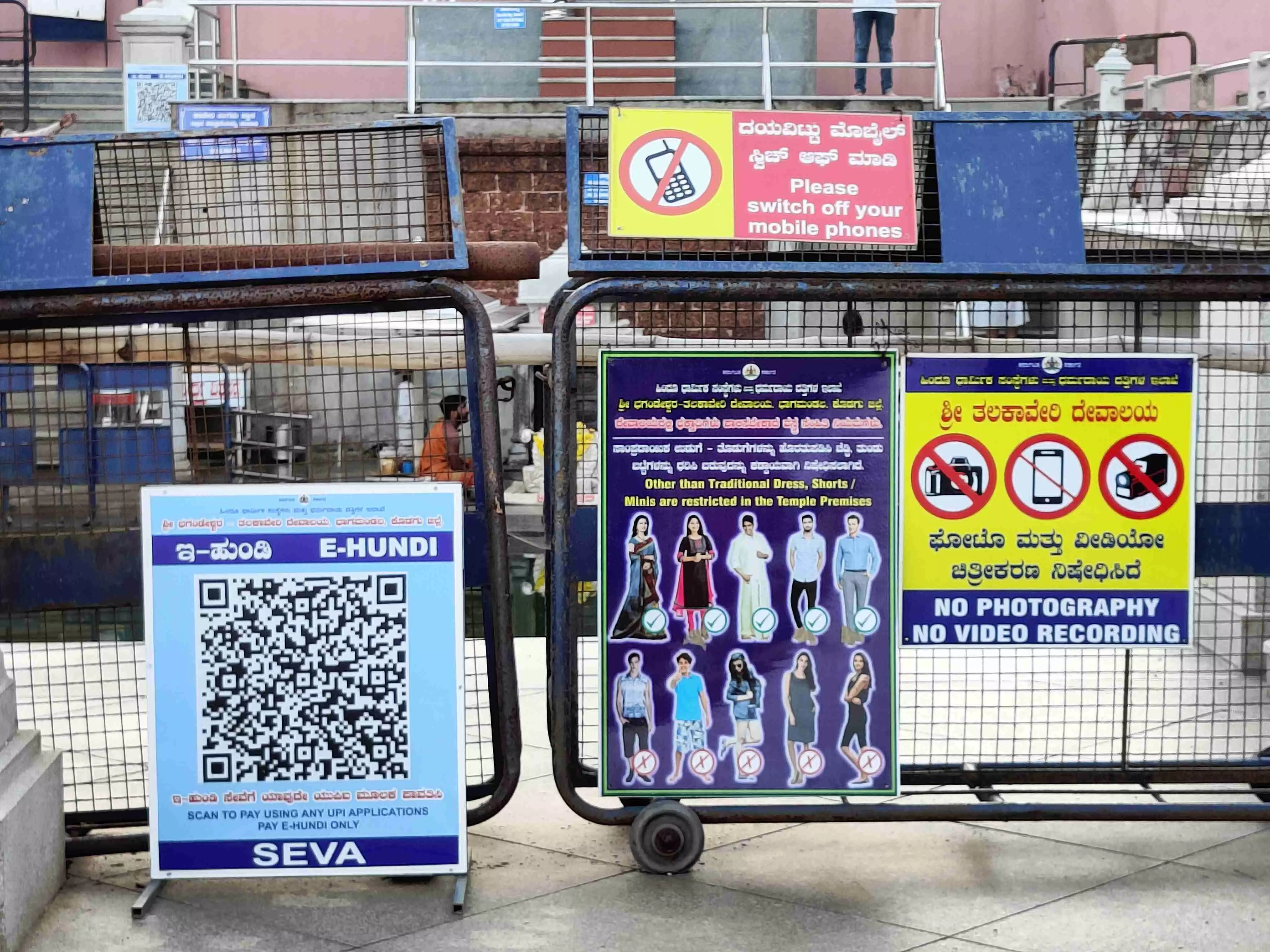Dress appropriately or no entry, order Karnataka temples
The temple managements have put up notice boards at the entrance of all the major temples with photos of dresses to be worn by men and women inside the temple and those that are banned.
By CR Gowri Shanker
Hyderabad: Next time you wish to go on a holiday-cum-pilgrimage to neighbouring Karnataka, have a proper dress sense when visiting Hindu temples! If your dress is ‘inappropriate’ or not as prescribed by the temple authorities, you will be sent back - whether you are a man or a woman!
Of course, there is a solution if you happen to wear hot pants or shorts etc. You can pay Rs 30 and hire a white lungi, which will help cover your modesty!
A strict dress code is a common practice at many temples in Karnataka. There is a rigid dress code in Shree Talacauvery Temple, the birth place of River Cauvery, Omkareshwara Temple, Madikeri in Coorg district and other major temples across Karnataka. The temple managements have put up notice boards at the entrance of all the major temples with photos of dresses to be worn by men and women inside the temple and those that are banned.
“Other than traditional dress, shorts/minis are restricted in the temple premises,” reads a notice board with photos of dress examples at a temple’s entrance. “SHORT DRESS NOT ALLOWED” reads a notice board loudly at the Omkareshwar Temple. There are also notice boards that say ‘No photography and no video recording.’ Photography and videography are banned here, unlike some temples in North India where it is allowed.
What we have observed is that the security personnel and pujaris, who notice anyone wearing a dress above the knee, disallow the persons from entering the temple, especially into the sanctum sanctorum. In some temples, men have to remove shirts before entering the temple, since in the olden days wearing a shirt was considered ostentatious and a symbol of wealth.
Many young men and women from Bengaluru (Bangalore) and its neighbouring states of Andhra Pradesh, and Telangana plan weekend travel holidays. But those who wear hot pants, shorts, tight jeans and other ‘objectionable’ dresses will be sent back by security personnel outside the temple.
However, the security personnel have a ready solution. Hire a white lungi from a dealer near the temple and wrap it around the shorts/jeans etc and get entry. The problem is solved! At many temples, lungis on rent are available for tourists for Rs 25 to Rs 30 per lungi for one-time wear, which should be returned after having a darshan of the God or Goddess.
“We do not allow men or women who do not wear inappropriate dress inside the temple. This is the decision of the temple management. However, it should also be borne in mind that when you are visiting temples as per Hindu tradition, we should wear an appropriate dress,” remarked a security officer.
He added, “Such restrictions are not confined to Hindu temples. The same is followed at churches, mosques, gurudwaras, etc.”
Hijab row
Karnataka has recently witnessed a hijab row, where Muslim girls wearing a hijab or a burkha have been barred from entering examination halls and schools. This has kicked up a massive row across the country and became a key issue in the recently held state elections.
Congress won the polls defeating BJP and one of the promises is to ease restrictions on hijab. In fact, the hijab and the burkha issue has polarised the electorate and the communities, resulting in clashes at some places before polls.
Not just in Karnataka, restrictions on devotees on what to wear inside the temple are there in all temples in the country including the world-famous Sri Venkateswara Swamy temple at Tirumala in Andhra Pradesh.
Karnataka State has 34,563 temples. In fact, the former Karnataka chief minister Basavaraj Bommai, who lost power to Congress in recent polls, promised that his government will bring in a law to “free Hindu temples” from state control, which is a long-pending demand of the Sangh Parivar.